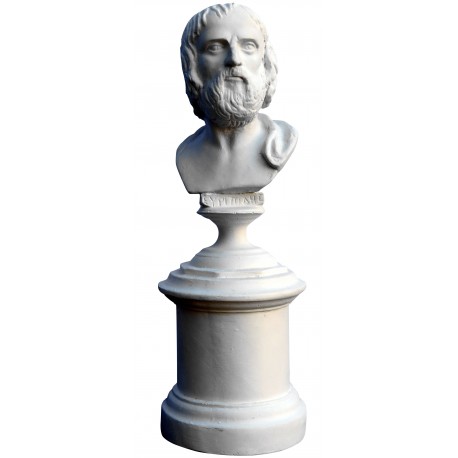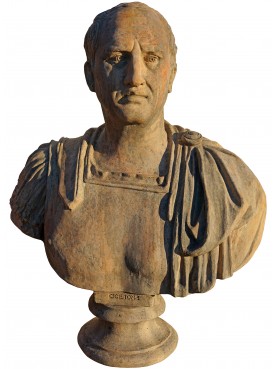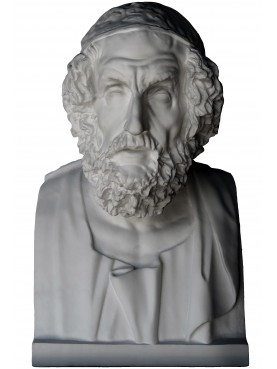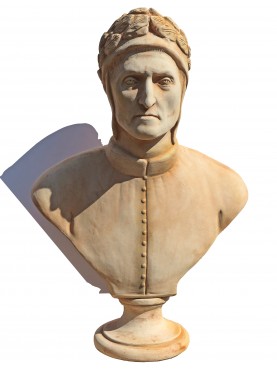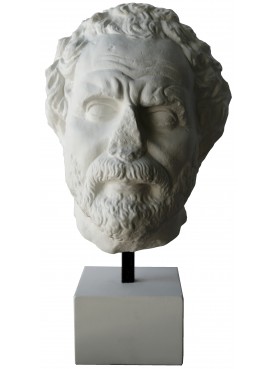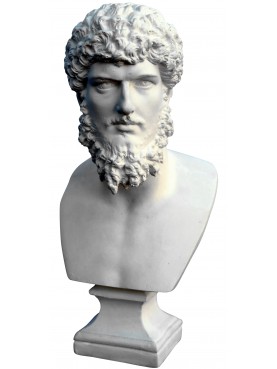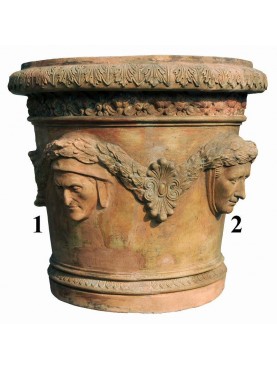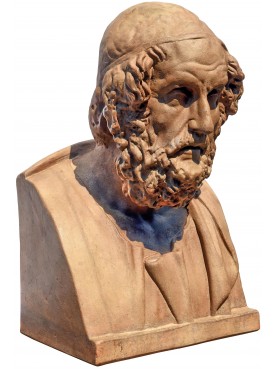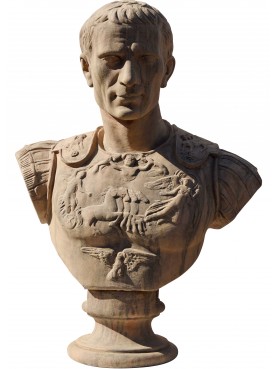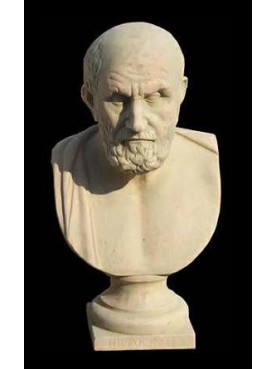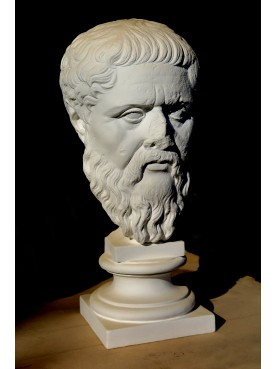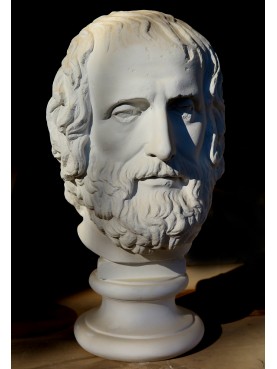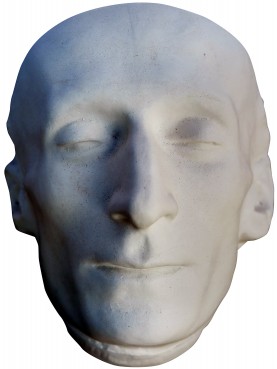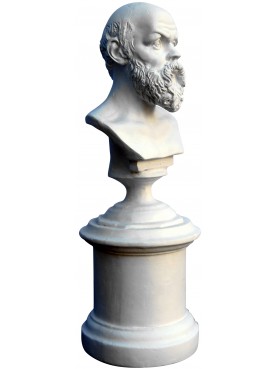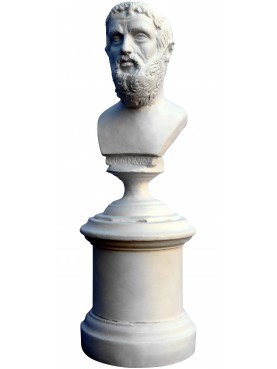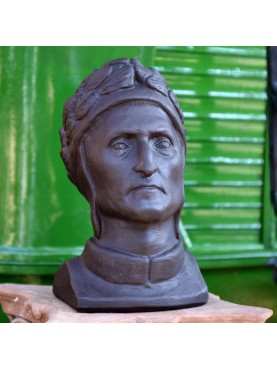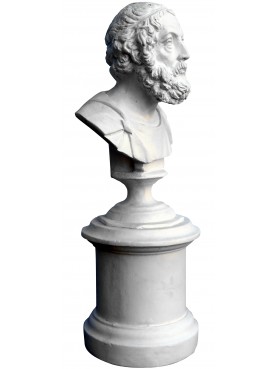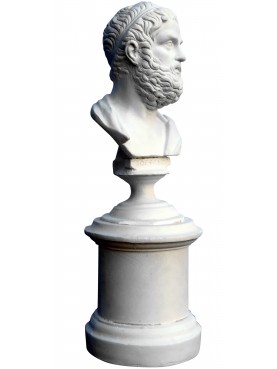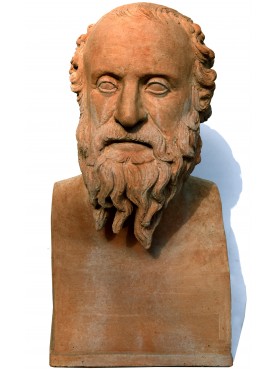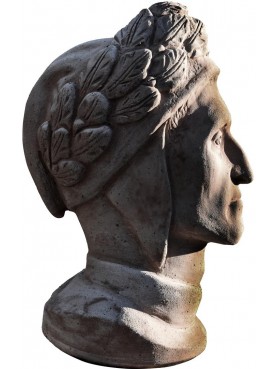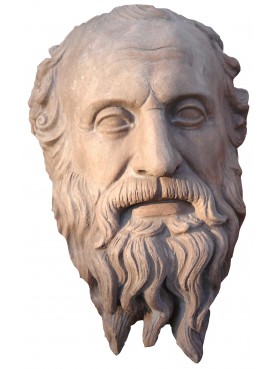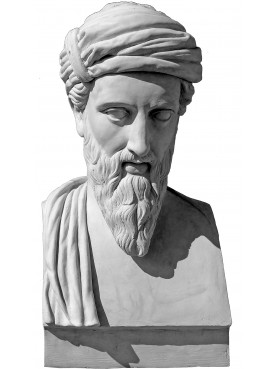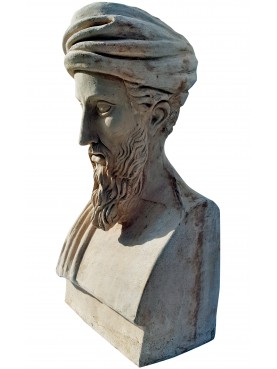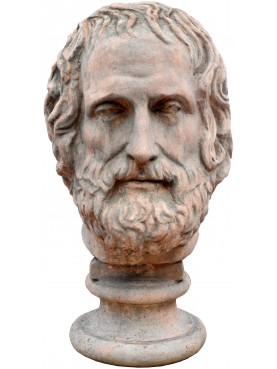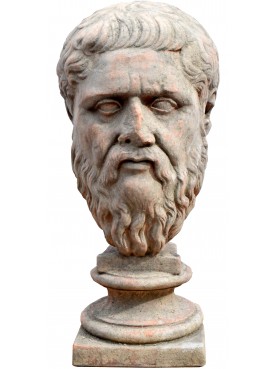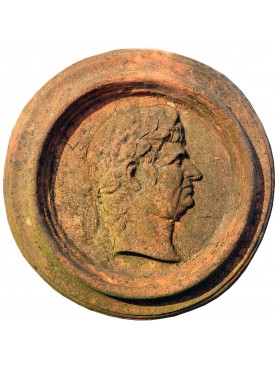Euripides, little tanagre of the Greek playwright
Euripides, little tanagre of the Greek playwright
12108
New
Euripides (Athens, 485 a.C. – Pella, 407-406 a.C.).
Small plaster cast bust "TANAGRE".
Hand made in Italy.
1 Available
Data sheet
| Height | 9.65 in | 24,5 cm |
| Width | 3.31 in | 8,4 cm |
| Depth | 3.54 in | 9 cm |
| Manufacturing | Made in Italy | |
| Material | Plaster cast |
More info
Euripides (c. 480 – c. 406 BC) was a tragedian of classical Athens. He is one of the few whose plays have survived, with the others being Aeschylus, Sophocles, and potentially Euphorion. Some ancient scholars attributed 95 plays to him but according to the Suda it was 92 at most. Of these, 18 or 19 have survived more or less complete (there has been debate about his authorship of Rhesus, largely on stylistic grounds) and there are also fragments, some substantial, of most of the other plays. More of his plays have survived intact than those of Aeschylus and Sophocles together, partly due to mere chance and partly because his popularity grew as theirs declined—he became, in the Hellenistic Age, a cornerstone of ancient literary education, along with Homer, Demosthenes and Menander.
Euripides is identified with theatrical innovations that have profoundly influenced drama down to modern times, especially in the representation of traditional, mythical heroes as ordinary people in extraordinary circumstances. This new approach led him to pioneer developments that later writers adapted to comedy, some of which are characteristic of romance. Yet he also became "the most tragic of poets", focusing on the inner lives and motives of his characters in a way previously unknown. He was "the creator of...that cage which is the theatre of Shakespeare's Othello, Racine's Phèdre, of Ibsen and Strindberg," in which "...imprisoned men and women destroy each other by the intensity of their loves and hates", and yet he was also the literary ancestor of comic dramatists as diverse as Menander and George Bernard Shaw.
His contemporaries associated him with Socrates as a leader of a decadent intellectualism, both of them being frequently lampooned by comic poets such as Aristophanes. Whereas Socrates was eventually put on trial and executed as a corrupting influence, Euripides chose a voluntary exile in old age, dying in Macedonia. Recent scholarship casts doubt on ancient biographies of Euripides. For example, it is possible that he never visited Macedonia at all, or, if he did, he might have been drawn there by King Archelaus with incentives that were also offered to other artists.
Traditional accounts of the author's life are found in many commentaries and include details such as these: He was born on Salamis Island around 480 BC, with parents Cleito (mother) and Mnesarchus (father), a retailer who lived in a village near Athens. Upon the receipt of an oracle saying that his son was fated to win "crowns of victory", Mnesarchus insisted that the boy should train for a career in athletics. In fact the boy was destined for a career on the stage, where however he was to win only five victories, one of which was after his death. He served for a short time as both dancer and torch-bearer at the rites of Apollo Zosterius. His education was not confined to athletics: he also studied painting and philosophy under the masters Prodicus and Anaxagoras. He had two disastrous marriages and both his wives—Melite and Choerine (the latter bearing him three sons)—were unfaithful. He became a recluse, making a home for himself in a cave on Salamis (The Cave of Euripides, where a cult of the playwright developed after his death). "There he built an impressive library and pursued daily communion with the sea and sky". Eventually he retired to the "rustic court" of King Archelaus in Macedonia, where he died in 406 BC.[15] However, as mentioned in the introduction, biographical details such as these should be regarded with scepticism.
Source Wikipedia

